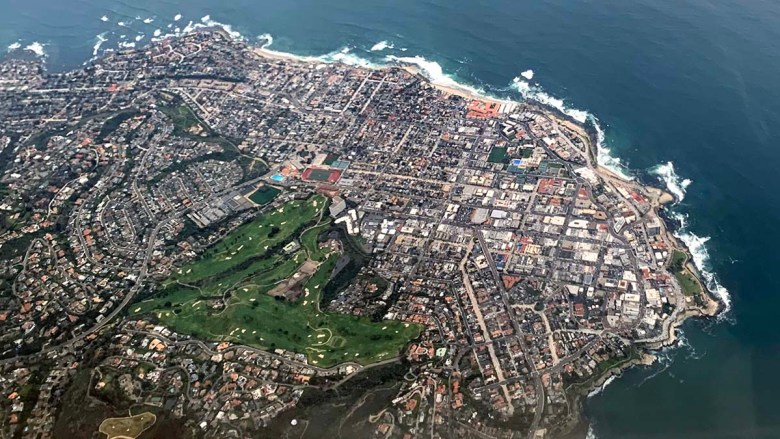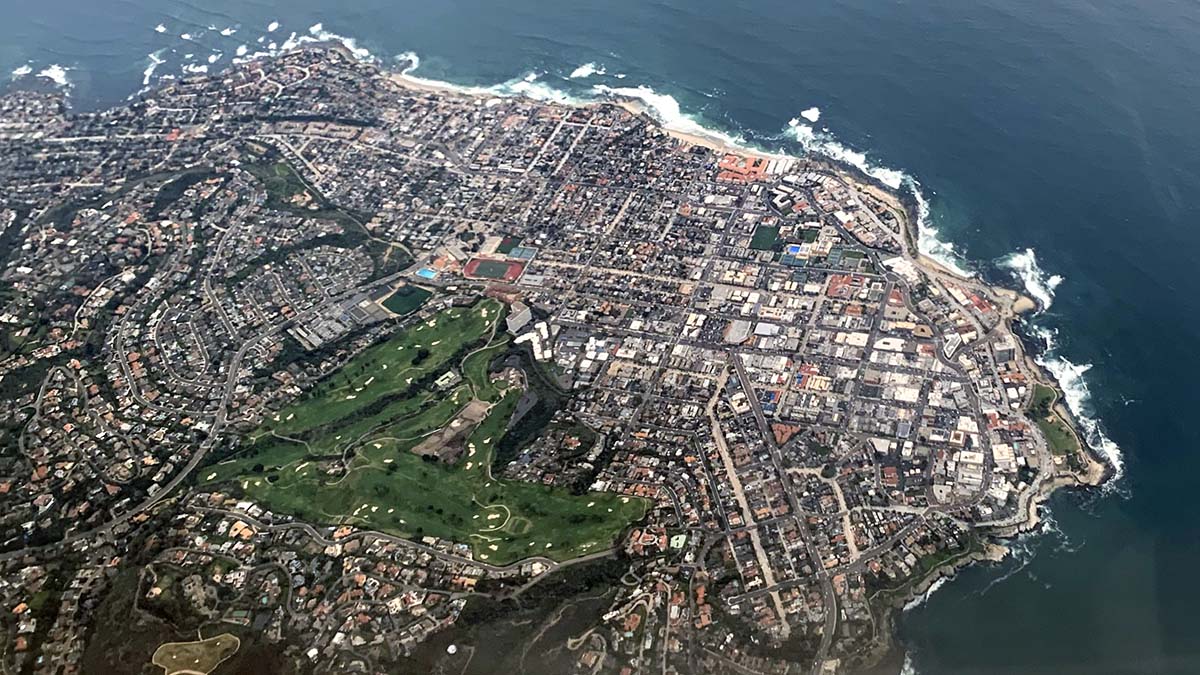 La Jolla. (File photo by Chris Stone/Times of San Diego)
La Jolla. (File photo by Chris Stone/Times of San Diego)
A drive by a La Jolla nonprofit to turn the community into its own municipality can resume following a judge’s order issued Friday.
Superior Court Judge Judy Bae tentatively ruled against the city of San Diego and in favor of the Association for the City of La Jolla and the San Diego Local Agency Formation Commission.
The city’s June lawsuit against LAFCO, which is empowered with approving or denying proposed changes in local government boundaries, challenged the community’s ongoing effort to secede.
The city contended that LAFCO improperly certified a previous ACLJ petition drive seeking to place La Jolla’s incorporation on a future ballot.
The regional agency’s plans to proceed with the incorporation review process, the city said in the suit, would impose “substantial irreparable harm” due to costs associated with city staff time required to review ACLJ’s proposal.
ACLJ filed a motion in August in response to the city lawsuit, arguing that the city’s lawsuit is “a meritless attempt to obstruct democratic participation and silence a public-interest effort through costly litigation. The city’s shifting legal claims, first alleging insufficient (ballot initiative) signatures, and now citing economic inconvenience, reveal its true intent: to suppress lawful civic engagement. This is a textbook case of voter suppression.”
In its motion, ACLJ maintained that San Diego voters should be “deeply alarmed that City Hall is using public funds to attack a process that simply seeks an open and transparent assessment of whether La Jolla could operate as an independent city.”
The court’s ruling was hailed as a victory by ACLJ and its board.
“We want to make sure the intent of those who signed the petition is honored and hope to move forward in this process,” said Sharon Wampler, a member of the ACLJ board, which includes Diane Kane, Ted Levis, Ed Witt, Mary Munk and Jeff Scott.
LAFCO also issued a statement, saying the agency is “pleased with the trial court’s ruling” affirming that Executive Officer, Keene Simonds “acted fully within his statutory authority when overruling the Registrar of Voters’ improper rejection of signatures due to minor misspellings, nonstandard abbreviations, or legibility issues.”
The La Jolla incorporation process now is set to proceed to the next stage, which involves a comprehensive review by LAFCO. If the agency approves the application, the cityhood proposal would then go to a public vote.
“This is truly a community-driven campaign,” said ACLJ’s president Diane Kane, who previously noted there is much work left to do. She pointed out the association will have to hire a consultant to conduct a final feasibility report on whether La Jolla could be viable as its own city, a process she expects to take six to nine months.
If all continues to go well, Kane added ACLJ’s current timeline is to get the question of cityhood for La Jolla placed on a ballot in 2028.
The city has previously said it would likely appeal the LAFCO ruling to the California Supreme Court.
ACLJ was clear in contending who the organization feels should be the final arbiter of incorporation for La Jolla. “In the end, the decision of becoming a city belongs to the voters,” said the group.
READ NEXT

